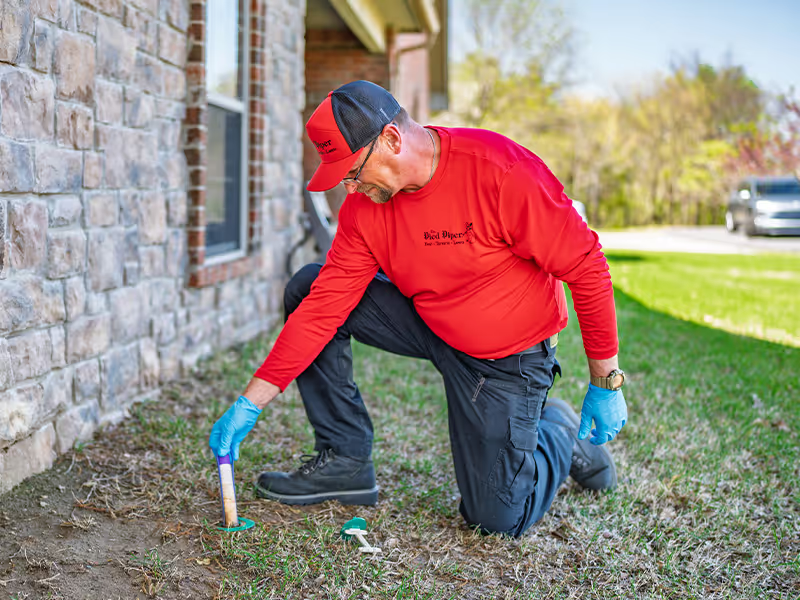Common Signs of Rodents
Rodent Droppings
One of the clearest indicators of a rodent problem is droppings. Rodents leave small, dark pellets in hidden areas such as cupboards, under sinks, behind appliances, and near food sources. Even a few droppings can indicate a larger problem. Droppings carry bacteria that can contaminate surfaces and food, so spotting them early allows you to act before health risks increase.
Chew Marks
Rodents constantly gnaw to keep their teeth short, often resulting in damaged packaging, food containers, stored belongings, building materials, and electrical wires in walls. Inspect food storage areas, the kitchen, attic, and other rodent hotspots for shredded packaging, fabrics, and other materials. Also, look for bite marks. In commercial settings, signs of gnawing around stock or shipping boxes may indicate rodents are compromising inventory and creating potential contamination risks.
Unusual Smells
Rodents leave urine trails and droppings that can create strong, unpleasant odors. Musty or ammonia-like smells often appear in hidden areas like basements, attics, and storage closets.
Dead rodents often produce an unpleasant scent as they decompose. Recognizing these odors early can help you locate the source before the problem escalates.
Nesting Materials
Rodents like to stay out of sight, so they’ll build nests in tucked-away places such as attics, crawl spaces, behind walls, or inside stored boxes. They commonly use whatever soft materials they find, including paper, insulation, or fabric scraps. In businesses, nests often turn up in storage areas or spots that aren’t checked frequently.
Noises
Scratching, scurrying, or squeaking, especially at night, can indicate rodent activity inside walls, ceilings, or under floors.
Preventing Rodent Infestations in Homes and Businesses
Taking steps to make your property less appealing to rodents is the most effective way to avoid infestations:
- Seal Entry Points: Close gaps around doors, windows, vents, pipes, and foundations. Even small holes are easy access points for mice and rats.
- Keep Spaces Clean and Dry: Regularly clean up food crumbs, spills, and pet food. Fix leaky pipes and reduce excess moisture in crawl spaces, basements, and kitchens.
- Proper Food Storage: Store food in airtight containers in pantries, kitchens, and break rooms. Refrigerate perishable items when possible.
- Declutter: Rodents love hiding in cardboard, paper, and storage boxes. Keep storage areas organized and tidy.
- Maintain Outdoor Areas: Remove leaf piles, firewood, and debris around your property. Trim vegetation that touches buildings.
- Manage Trash Properly: Keep trash in tightly sealed containers indoors, empty them regularly, and clean them to reduce odors that attract rodents. Ensure cardboard and other trash do not accumulate around commercial dumpsters.
These prevention steps work for both homes and businesses. For commercial properties, it’s especially important to monitor kitchens, stockrooms, and loading areas, as these spaces tend to attract rodents the most.
Professional Pest Control for Mice and Rats
While preventive measures can help, infestations often require expert intervention. If you notice droppings, chewed packaging, unusual odors, or hear noises, contacting a pest control professional is the best way to resolve rodent issues.
At The Pied Piper, we offer expert pest control services for mice, rats, and other pests that take over homes and businesses in our service area. Our highly trained and fully licensed pest control pros will:
- Identify entry points and signs of infestation
- Eliminate existing rodent activity
- Implement exclusion and prevention strategies to keep rodents out long-term
Protect your property today. Contact Pied Piper Pest Control to safeguard your home or business from rodents.
This blog was originally published on December 12, 2017; it has been updated to reflect the most up-to-date information.





















